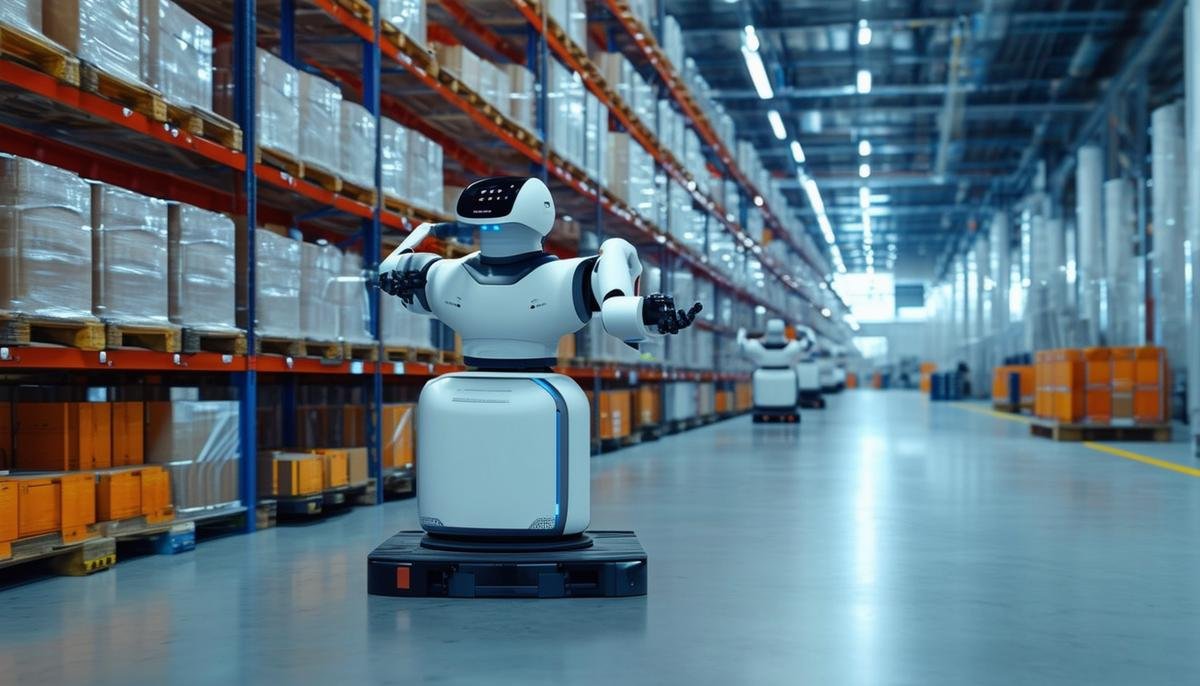Current State and Evolution of Generative AI
Generative AI has made significant strides in recent years. ChatGPT, developed by OpenAI, has become a widely used tool across various sectors. Open-source AI models like Meta's LLaMa have also gained traction, making sophisticated AI tools more accessible.
The integration of AI with cloud computing has facilitated easier scaling and deployment of AI applications. NVIDIA's GPUs have become essential for training and running these models, leading to increased demand and valuation.
Multimodal AI, capable of processing text, images, and videos, has emerged as a significant development. GPT-4's ability to handle diverse data inputs has expanded AI's versatility. Agentic AI, capable of autonomous operation, has also made progress in fields like environmental monitoring and finance.
Enterprises have begun customizing AI models for specific needs, enhancing efficiency and data control. Retrieval-augmented generation (RAG) has been developed to address AI's tendency to produce inaccurate information.
The rise of AI has brought ethical and security concerns to the forefront, particularly regarding deepfakes and misinformation. Regulatory bodies, such as the European Union with its AI Act, have begun developing frameworks to govern AI use, focusing on:
- Transparency
- Safety
- Ethical considerations
Business Integration and Real-World Applications
Generative AI has been integrated into various business sectors, enhancing efficiency and innovation. In customer support, AI-powered chatbots and virtual assistants provide 24/7 service, improving response times and freeing human agents for complex queries.
Supply chain management has benefited from AI's predictive capabilities, optimizing inventory levels and identifying potential disruptions. Productivity tools leveraging AI have streamlined communication and project management.
In healthcare, AI assists in:
- Diagnosing conditions
- Suggesting treatment plans
- Predicting disease outbreaks
The legal sector uses AI for contract review, legal research, and ensuring regulatory compliance.
Financial institutions employ AI for risk management, fraud detection, and optimizing investment portfolios. Personalized marketing has been revolutionized by AI, with companies like Netflix and Amazon providing customized recommendations.
Manufacturing has seen improvements through AI-powered robotics and predictive maintenance systems. In education, AI creates adaptive learning systems and assists in grading, allowing educators to focus more on teaching.

Technological Trends and Innovations
Recent AI developments focus on creating smaller, more efficient models for specific tasks. Techniques like Low Rank Adaptation (LoRA) optimize model training by adding small, trainable weight matrices to pre-trained models, reducing computational requirements.
Quantization, which lowers the precision of data points in AI models, has improved memory usage and inference speeds. Direct Preference Optimization (DPO) has emerged as an efficient method for aligning model outputs with human preferences.
Open-source AI projects like Meta's LLaMa and Mistral AI's Mixtral models are gaining popularity, offering alternatives to proprietary systems and fostering innovation among smaller developers.
"It gives everyone easy, fairly democratized access, and it's great for experimentation and exploration," said Matt Barrington, Americas emerging technologies leader at EY.
Multimodal AI, integrating various data types like text, images, and audio, represents another frontier in AI innovation. This capability enhances AI's versatility in fields such as customer service and education.
Efforts to ensure ethical AI deployment include developing systems to detect deepfakes and prevent misuse of AI-generated content. Regulatory frameworks are being established to set global standards for AI use, focusing on transparency and accountability.

Ethical, Regulatory, and Security Concerns
As AI technology advances, significant ethical, regulatory, and security concerns must be addressed:
- Data privacy: Stringent practices are needed to protect personal information used in AI training. Companies must comply with regulations like GDPR to mitigate risks of data breaches.
- Bias in AI models: AI systems can inadvertently amplify discrimination against protected groups. Addressing this requires:
- Diversifying training datasets
- Implementing bias detection mechanisms
- Conducting regular audits
- Deepfake technology: Poses challenges to digital content authenticity, with potential for misuse in political manipulation and identity theft. Solutions include:
- Improving detection algorithms
- Developing strong authentication frameworks
- Misuse of AI: Systems can potentially be used for harmful purposes, such as creating autonomous weapons or enabling oppressive surveillance. Clear ethical guidelines and regulatory frameworks are needed to prevent these applications.
Regulatory efforts are taking shape globally:
- The EU's AI Act aims to create a comprehensive legal framework
- The US is issuing guidelines to regulate AI use in critical areas
- Internal corporate policies play a vital role in ethical AI deployment
Global collaboration is essential to harmonize AI regulations and share best practices. International bodies like the OECD and UNESCO are working to establish guidelines that can be adopted worldwide.
The rapid evolution of AI necessitates agile regulatory frameworks. Policymakers must engage with experts and stakeholders to understand new developments and devise appropriate regulations.

Future Predictions and Potential Impact
The development of artificial general intelligence (AGI) remains a highly anticipated milestone in AI. Unlike narrow AI, AGI could potentially understand, learn, and apply knowledge across a broad range of tasks at a human-comparable level.
"We're definitely seeing a rapid shift from what we've been calling this experimentation phase into [asking], 'How do I run this at scale across my enterprise?'" – Matt Barrington, Americas emerging technologies leader at EY
Experts offer varying predictions on the timeline for achieving AGI:
- Some suggest we may be only a few years away, driven by advancements in large language models
- Others remain cautious, emphasizing current limitations and the need for new approaches
The potential impact of AGI on various sectors is significant:
| Sector | Potential Impact |
|---|---|
| Economy | Automation of complex tasks across industries, increasing efficiency but raising concerns about job displacement |
| Healthcare | Transformation of diagnostics and treatment planning |
| Education | Personalized learning experiences |
| Scientific Research | Acceleration of discoveries in materials science and biotechnology, potentially leading to breakthroughs in renewable energy and climate change mitigation |
Societal implications of AGI include changes in how we work, live, and interact. It raises questions about dependency on artificial systems and the management of AI-driven decisions affecting daily lives.
To address these effects, proactive discourse involving policymakers, technologists, and ethicists is essential. Establishing regulatory frameworks and ethical standards will be crucial to ensure AGI development aligns with societal values.

In summary, the future of artificial intelligence holds significant promise and challenges. As we advance towards AGI, thoughtful governance and collaborative efforts will be crucial to harnessing its potential for societal benefit while addressing inherent risks.




